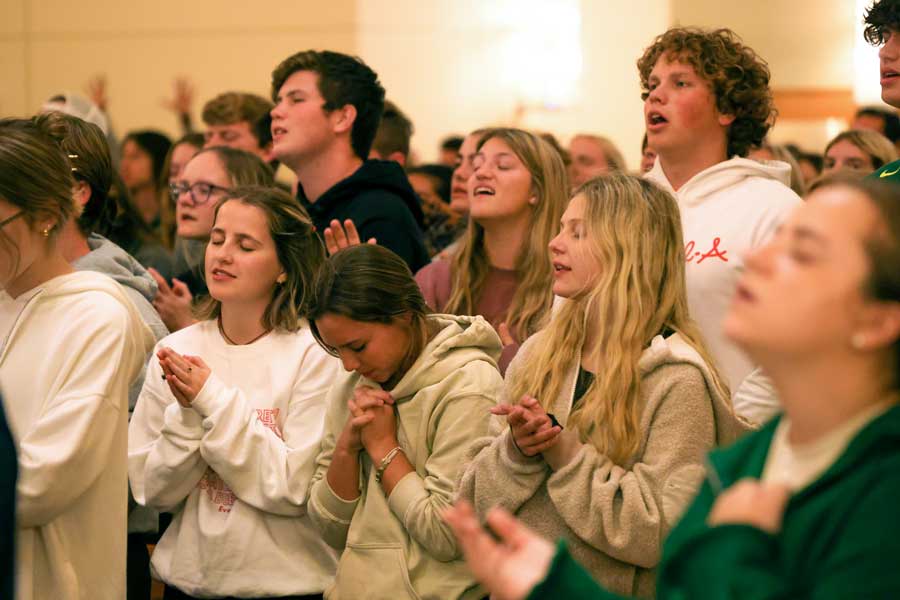A Long-Lasting Faith

According to research from Baylor’s ongoing Faith and Character Study, while peer influence is the top factor that leads to students attaining higher levels of vertical faith maturity (centered on engagement with God) and horizontal faith maturity (application of faith in service to others), attending a local place of worship also is a powerful predictor of both measures of faith maturity.
The study began in 2018 and tracks the long-term impact of a Baylor education on a person’s faith and character. The study also investigates the influence of peers, programs and professors on students’ faith maturity.
“Our study points out the common and contrasting ways that students can cultivate commitment to God and commitment to others,” said lead author J. J. Burtt, Ph.D. ’22, who now serves as a visiting professor at Trinity Western University in Langley, British Columbia. “Both of these expressions of faith are important outcomes for Christian colleges and universities.”
The researchers found that Christian colleges can promote faith maturity most effectively through peer relationships and intentional programs. Although faculty can serve as facilitators and role models for students’ faith maturity, peer influence on faith maturity is stronger, matching findings from prior research on religiosity in college. Since contact with professors is largely limited to classes, students spend much more time with their peers — in myriad ways — than with professors.
Additionally, according to the research, one of the most powerful predictors of both the vertical and horizontal faith maturity of students is attending a local place of worship.
“This is important news for parents,” said study co-author Kevin D. Dougherty, Ph.D., professor of sociology in Baylor’s College of Arts & Sciences. “To help your college daughter or son have a vibrant faith, encourage them to find a local place of worship and attend regularly.”
These findings extend beyond religious universities. At colleges and universities where faith is not an explicit part of curricular and co-curricular programs, the researchers suggest that they can offer classes on meaning and purpose, support the formation of student-led religious organizations, promote acts of community service and offer racial/cultural awareness workshops, all associated with increased faith maturity.